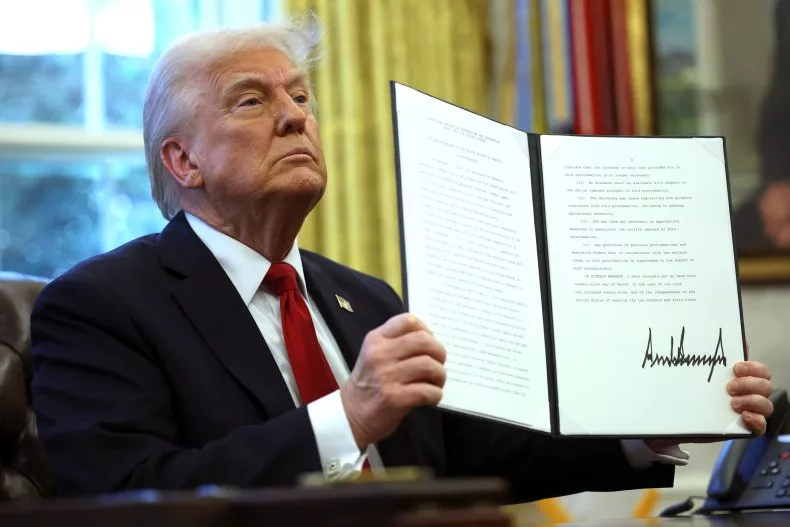
President Donald Trump announced on Wednesday that the U.S. will impose a 25% tax on imported cars. The White House says this move is meant to support American manufacturing, but it could also make things difficult for car companies that rely on international parts.
Trump called April 2, the day the tariff takes effect, “Liberation Day.”
“This will keep our economy growing,” Trump said. “We’re putting a 25% tariff in place.”
Why This Matters
The new tax is expected to bring in $100 billion per year, according to the White House. However, experts warn that it could cause problems for carmakers and raise prices for buyers.
Even U.S. car companies depend on parts from other countries, so the tariff could make production more expensive and limit the number of cars available. Prices may rise, and fewer people may be able to afford new vehicles. Despite these concerns, Trump defended the plan, saying it would force companies to build more cars in the U.S. “This is permanent,” he added.
What to Know
The stock market reacted immediately. Shares of General Motors fell 3%, and Stellantis (the owner of Jeep and Chrysler) dropped 3.6%. Ford’s stock, however, went up slightly.
Trump has always supported tariffs, saying they encourage businesses to produce goods in the U.S. instead of overseas. But experts say shifting car production to the U.S. won’t happen overnight. Companies would need time to build new factories and hire workers.
If carmakers pass the extra cost to buyers, prices could go up by as much as $12,500. With the average new car already costing around $49,000, this could make vehicles even less affordable for many families.
To help ease the burden, Trump proposed a tax break for people paying interest on car loans—but only if the car was made in the U.S.
This auto tariff is part of Trump’s larger plan to tax imports from countries like China, Mexico, and Canada. Some of these tariffs were delayed after manufacturers pushed back, but they are set to begin in April.
Trump pointed to Hyundai’s recent decision to build a $5.8 billion steel plant in Louisiana as proof that tariffs are helping bring jobs back to the U.S. Currently, about 1 million Americans work in car manufacturing—320,000 fewer than in 2000. Another 2.1 million work at auto dealerships.
Reactions
Not everyone is happy with the new tariff.
- Canadian Prime Minister Mark Carney called it “a direct attack” and said Canada would protect its businesses and workers.
- European Commission President Ursula von der Leyen warned that tariffs are “bad for businesses and even worse for consumers.” She said the EU would review the impact and consider its response.
Trump, however, insisted that American-made car parts won’t be taxed and that the tariff money will help reduce U.S. debt and fund new projects.
The White House also defended the move, saying: “President Trump is taking action to protect America’s auto industry, which is critical to our national security.”
What’s Next?
Trump plans to introduce more tariffs on steel, aluminum, pharmaceuticals, computer chips, lumber, and copper. Some worry this could start a global trade war. In response, the European Union has threatened a 50% tax on American spirits. Trump then announced he would put a 200% tax on European alcoholic drinks.
This is a developing story and will be updated as more details come in.
